
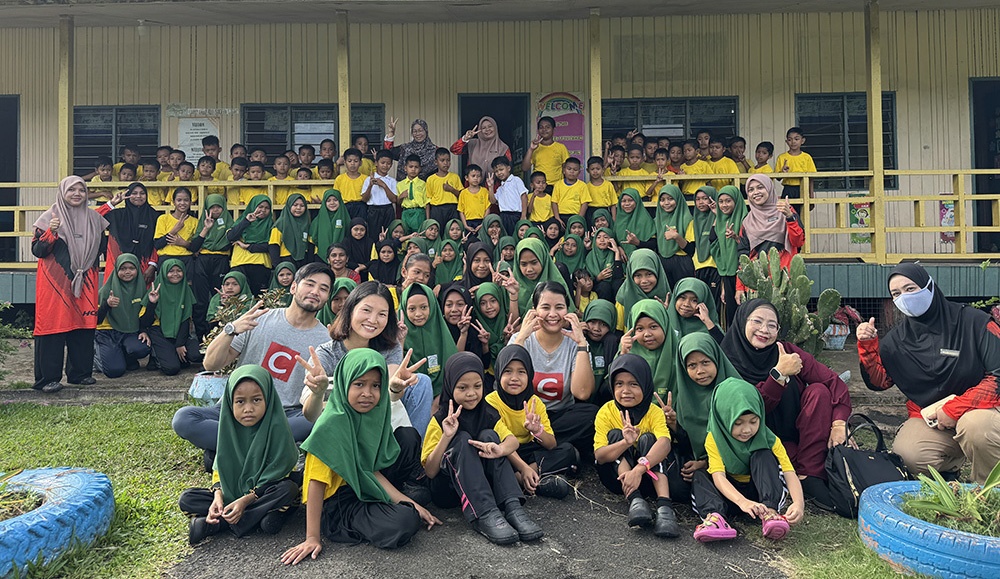
MY Voice team on a visit to a Humana Child Aid Society Learning Centre Sabah
In Malaysia, about 33,600 children are estimated to be engaged in child labour in palm oil plantations and the majority were found to be in Sabah (58.8%). However, there are alternative education opportunities for migrant children living on plantations. These fall into three broad categories: Community Learning Centres (CLCs), which are operated through a partnership between the Indonesian Government and plantation companies in Sabah, and provide services to Indonesian children; Alternative Learning Centres (ALCs), which are run through a partnership between the Humana Child Aid Society Sabah and plantation companies, and provide services to all children; and several other community-based learning centres operated by local NGOs and sponsors in rural parts of Sabah that provide services to all children.
MY Voice is working to implement a private sector-driven Child Labour Remediation Hub to address this gap. Working closely with the local solution providers already providing education and supportive services to children in these communities, we are working to build a network of remediation service providers and case managers.
“Community-based initiatives are vital in plantation and rural communities. These initiatives can help address children's limited access to the outside world and ensure their rights are protected. Local mechanisms are essential as regular business visits to remote locations could be less practical. These initiatives can also strengthen engagement with local plantations and build their capacity and knowledge on child labour prevention,” said Letchimi Devi, Project Manager, MY Voice initiative.
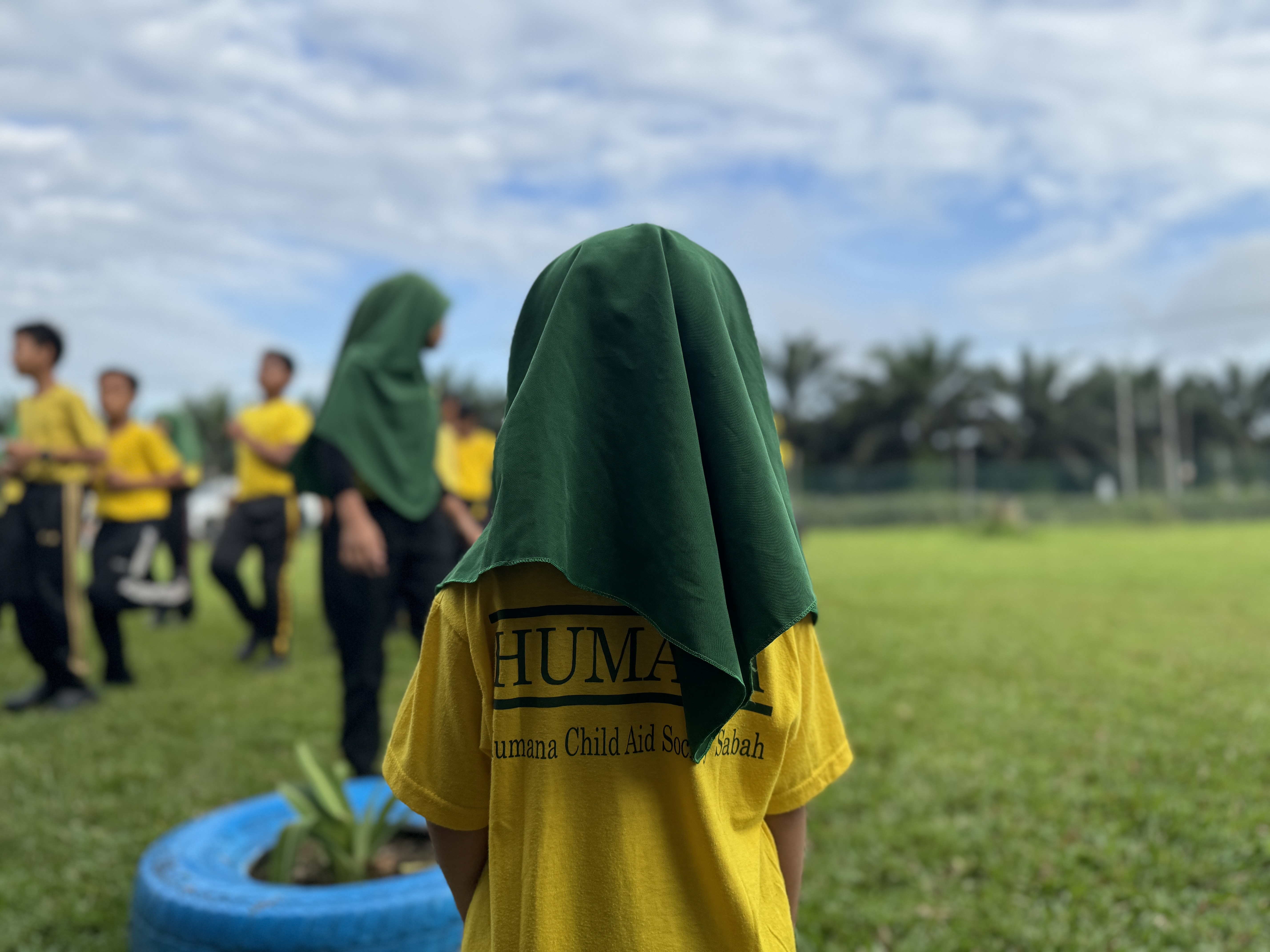
A student at Humana Child Aid Society Learning Centre Sabah
From February 29 to March 2, MY Voice held its first case manager training for the community-based organisation Humana Child Aid Society Sabah. Serving underprivileged children in palm oil plantations and rural areas of Sabah, Malaysia, Humana Child Aid Society Sabah provides education to children who are at risk of being forced into child labour and has been working towards the prevention of child labour. The organisation believes that every child has a right to education, regardless of background, nationality and legal status. Currently, Humana Child Aid Society Sabah is providing education to 12,000 children in Sabah’s plantations and other remote places through 98 learning centres hosted on local plantations. The organisation, which is also a member of the Roundtable on Responsible Palm Oil (RSPO), has a strong working relationship with local plantations that support Humana Child Aid Society Sabah with the management of these learning centres and actively take part in stakeholder meetings.
"Children on the plantations stop attending classes for different reasons. We often see an increase in the number of children being taken out of our classes, especially from grades four to six. Many of the children in plantations are often taken out of education once they are a little older and can help with the work on the ground," said Noraini, a teacher from Humana Child Aid Society Sabah.
At Humana Child Aid Society Sabah's learning centres, children do not just read and study. They are given a holistic education that includes physical health and art
"These teachers play a huge role as they are often the first contact with the children they see daily. These teachers are the ones tasked not just to educate and nurture, but also keep an eye out for child labour risks among their students and spread awareness of the negative risks associated with child labour,” said Riri Malikah, Director of Services and Products (Asia), The Centre for Child Rights and Business.
The case manager training in Tawau covered strategies to prevent child labour and to support remediation processes for identified cases of child labour. The training was attended by 17 Humana teachers, all of whom had also previously attended MY Voice’s training on child labour prevention and remediation in Lahad Datu and Kota Kinabalu in September and December 2023. This training built on the previous, providing more detail on handling child labour remediation cases and providing safe interim arrangements for children through discussion of case studies and real-life examples. After passing the post-training examination, these teachers will become child labour remediation case managers, equipping them to serve as trusted advocates for children in their communities.
“MY Voice and Humana Child Aid Society Sabah have partnered to help improve the lives of children living in oil palm plantations. By providing education and training, the prevalence of child labour can be reduced, especially among children under 18. This training provided to case managers can help our teachers understand their responsibilities as educators and as protectors of these children, which can prevent child labour and ensure their safety. This programme also aims to minimise the risk and occurrence of child labour in the palm oil industry,” said Dayang, Executive Director of Humana Child Aid Society Sabah.
Beyond addressing child labour risks, the training covers forced labour and gender-related issues like sexual harassment. It recognises the difficulties encountered by children withdrawn from schooling to engage in tasks at ground level.
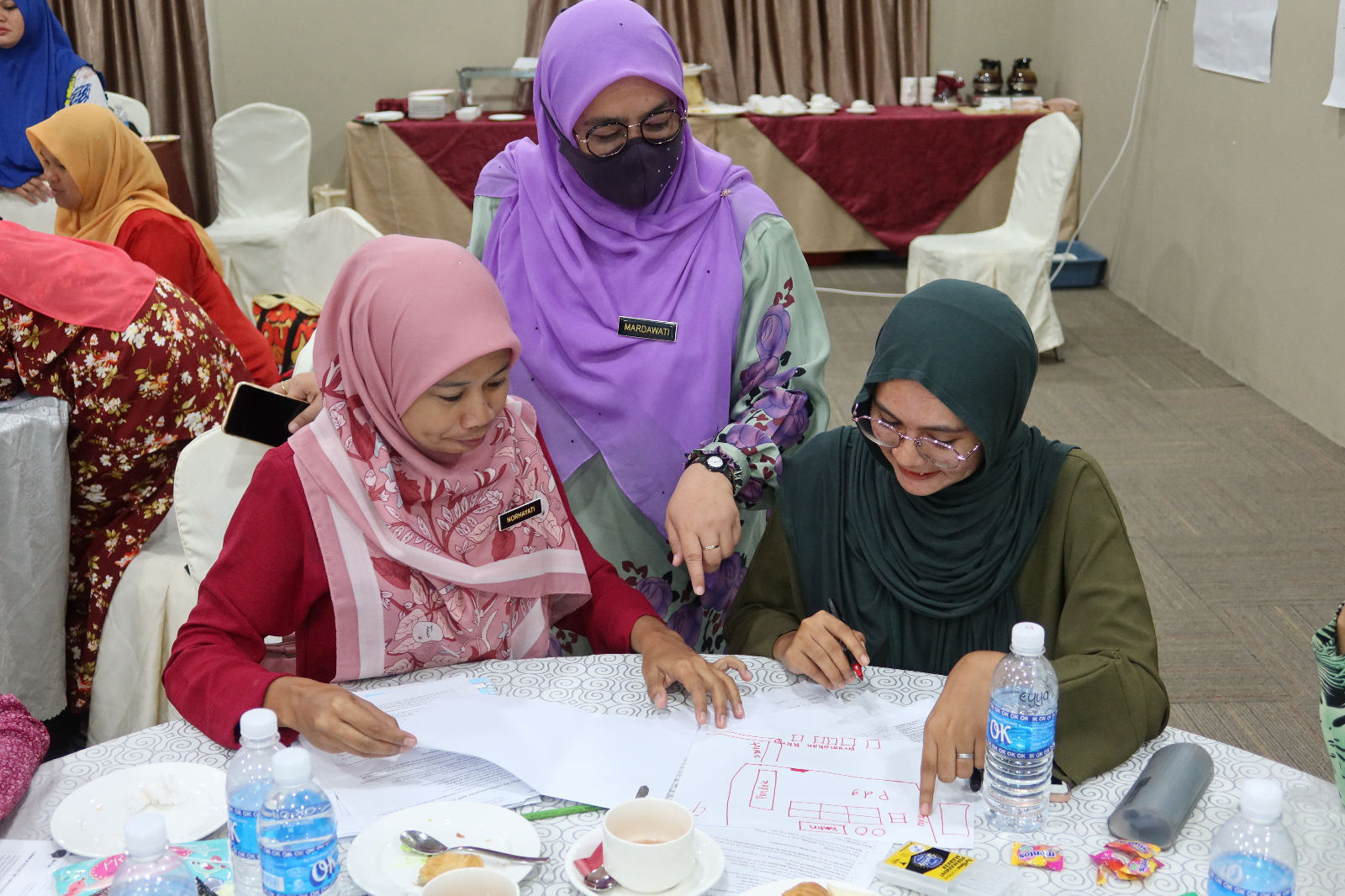
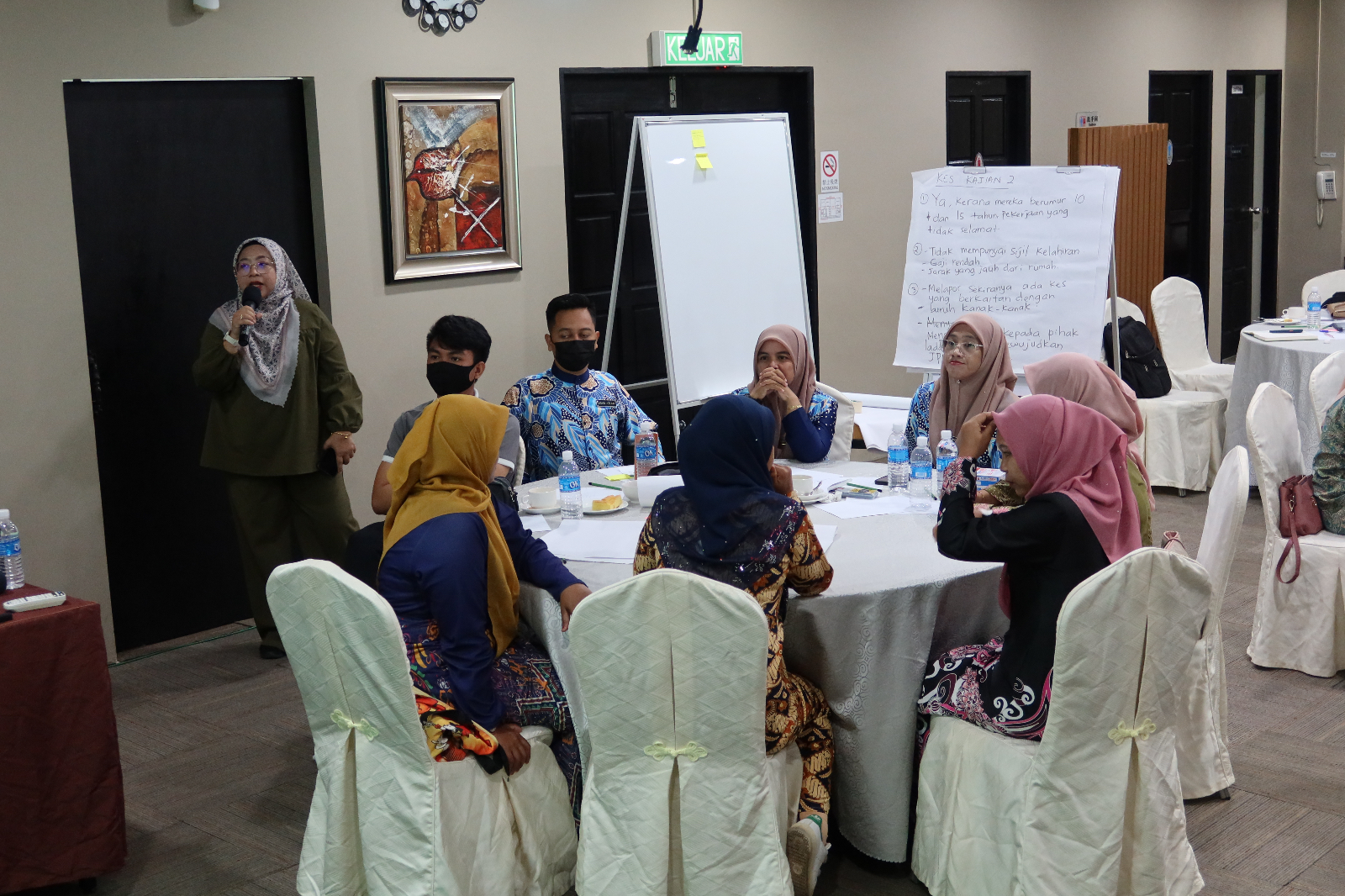
Next Steps for MY Voice Child Labour Remediation Hub
The official launch of MY Voice’s child labour remediation initiative is scheduled for May 2024, but teachers are already motivated and committed to bringing positive change to their students and community.
“This training has given us (Humana Child Aid Society Sabah’s teachers) an even greater responsibility to remediate the situation when a child is already in child labour, addressing the question of what to do when a child is found in such circumstances,” said Supri, a coordinator for Humana.
"I hope that with the knowledge I have gained from this training, I can help parents pay attention to the importance of their child's education. Children need to be encouraged to study and kept out of work," added Suriyani, a teacher from Humana Child Aid Society Sabah.
Upholding child rights and child protection is only successful through a commitment from all stakeholders. Investing in training teachers, who are the central welfare officers to these children, is one step in setting them up for a vibrant and healthy life. Parents, communities, government, employers, international palm oil companies, plantations, and others all play an important role in establishing an industry-wide social compliance system that effectively prevents and remediates child labour.
If you or your business in the palm oil sector are interested in participating in this initiative and getting our support to address the risk of child labour in your premises and supply chain, the MY Voice initiative can help. Reach out via email. Together, we can create a brighter future and bring positive changes to the children in these communities.
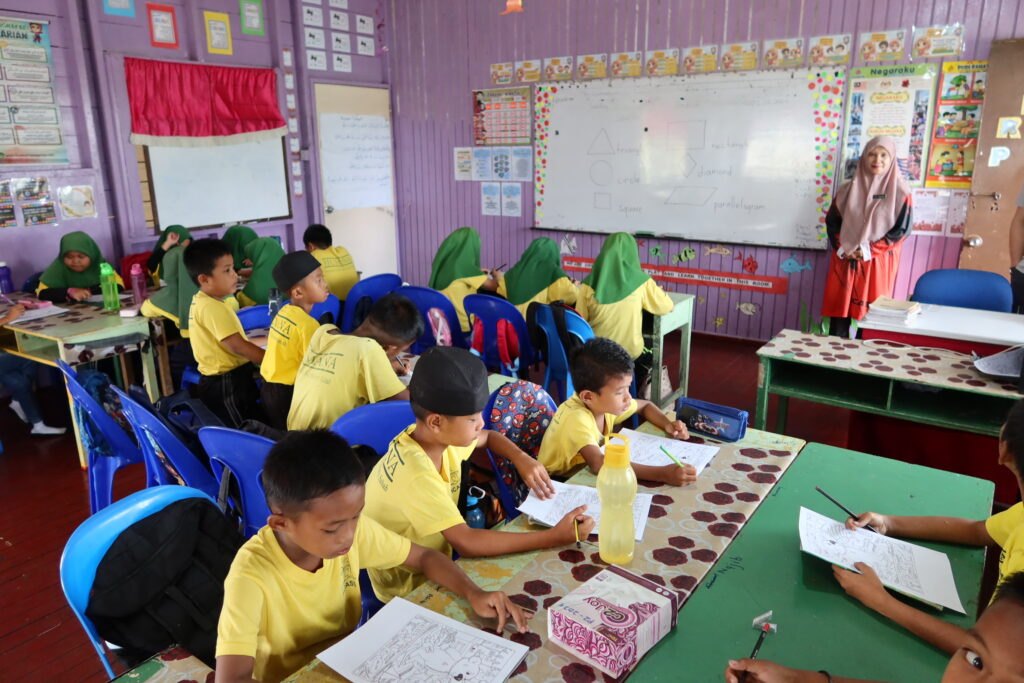
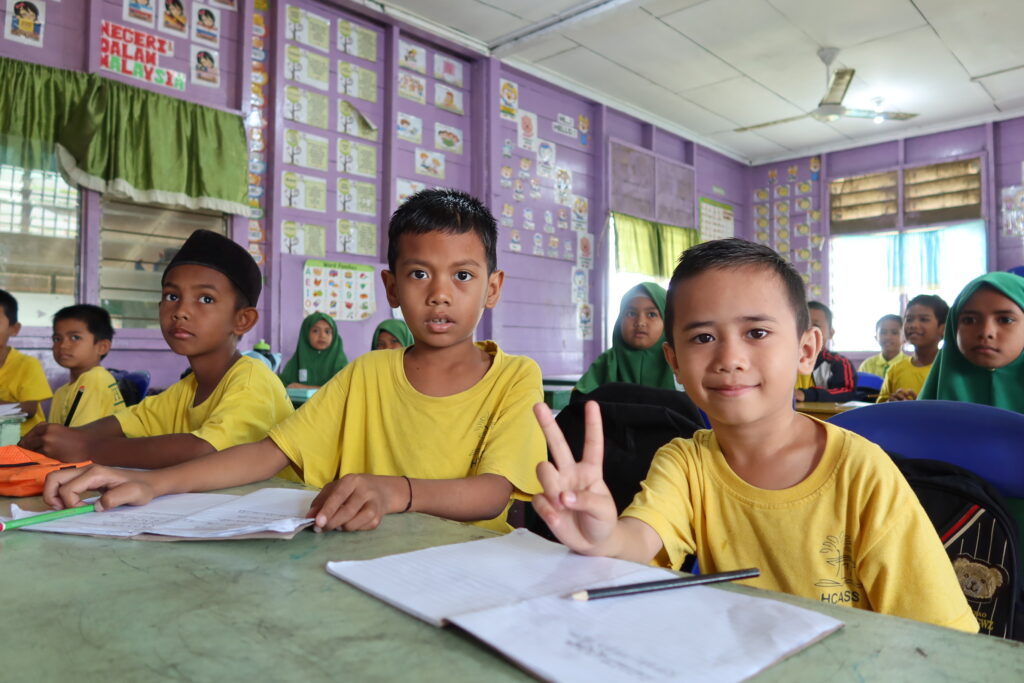 Children in Humana Child Aid Society Sabah’s Learning Centre
Children in Humana Child Aid Society Sabah’s Learning Centre1. UNICEF Case Study: Migration and Protection Risks – Child Labour and Other Protection Risks of Migrant Children Living on Palm Oil Plantations in Sabah, Malaysia, page 29
2. MY Voice is led by Social Accountability International (SAI), a global non-governmental organisation dedicated to advancing human rights at work. Funding for MY Voice is provided by the United States Department of Labor under cooperative agreement number IL-37321-21-75-K. 100% of the total costs of the project is financed with USG federal funds, for a total of $5,000,000 dollars. This material does not necessarily reflect the views or policies of the United States Department of Labor, nor does mention of trade names, commercial products, or organisations imply endorsement by the United States Government
By using this website, you agree to our use of cookies. We use cookies to provide you with a great experience and to help our website run effectively.